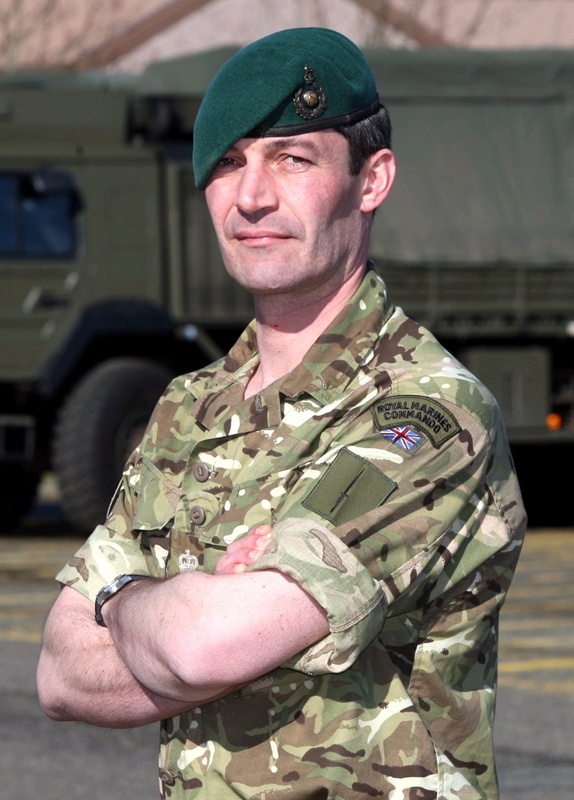The last marines from Arbroath’s 45 Commando have arrived home safely from Afghanistan after a six-month tour.
They left Helmand Province on Friday for some much-needed rest and recuperation. The last marines arriving home means the operation ended without a single fatality, although 13 marines from RM Condor have died in deployments to Afghanistan since 2006.
This year’s deployment was 45 Commando’s first summer tour and its first time at Nad-e Ali South, at a critical time for the build-up to full handover to Afghan control at the end of 2014.
Commanding officer Lieutenant Colonel Oliver Lee said: ”The men of this commando unit are, in my very biased opinion, the very best of the very best doing what they do best on operations.
”I often talk to the commando by saying service in the Royal Marines is the ordinary man’s way of escaping the ordinary. It gives people the opportunity to get up in the morning and look themselves in the mirror, sure in the knowledge that in this rather chaotic world that we find ourselves in, what they do, fundamentally, makes a difference for the better.
”It’s a special thing to do and I categorised it at the end of my post-operational report by saying that ultimately it was the common human decency, the humanity and the insatiable desire to make a difference for the better of every man in 45 Commando that actually was the factor that made the difference.
”The men of this Commando unit have just left Nad-e Ali South a significantly better place than the one they found it.”
Until recently the area was a launchpad for insurgents to attack International Security Assistance Force (ISAF) and Afghan troops, as well as civilians. Their work has paid off, with locals turning against the Taliban and offering intelligence on weapons and insurgents.
Lt Col Lee said: ”In 2011 Nad-e-Ali South was 86% less violent than it was in 2010 for the exact same six-month chunk we were there.
”What we hoped was that would allow the people’s confidence to grow because when we first got there the people spoke with one voice namely that they despised the insurgency and the impact of its violence on them and their families but they were helpless to do anything about it.
“Why? Because they viewed that every single summer there would always be fighting.
”What I felt we needed to do was to disprove the thesis of inevitable summer violence and thereby mobilise the one thing the insurgency can’t cope with, which is the people 80,000 potential counter-insurgents.”
He added: ”Gradually during the summer the various milestones were passed at which point the people expected that inevitable summer fighting to start.
”But as it didn’t come and didn’t come and didn’t come and we viewed each passing day as a success story, so the people’s confidence grew and the insurgent fell into that classic trap of overpromising dramatically and underdelivering.
”He started to be viewed by the people as impotent and non-credible and they started to vote decisively against him physically preventing him from setting IEDs and physically preventing him from seeking refuge in their compounds.”
